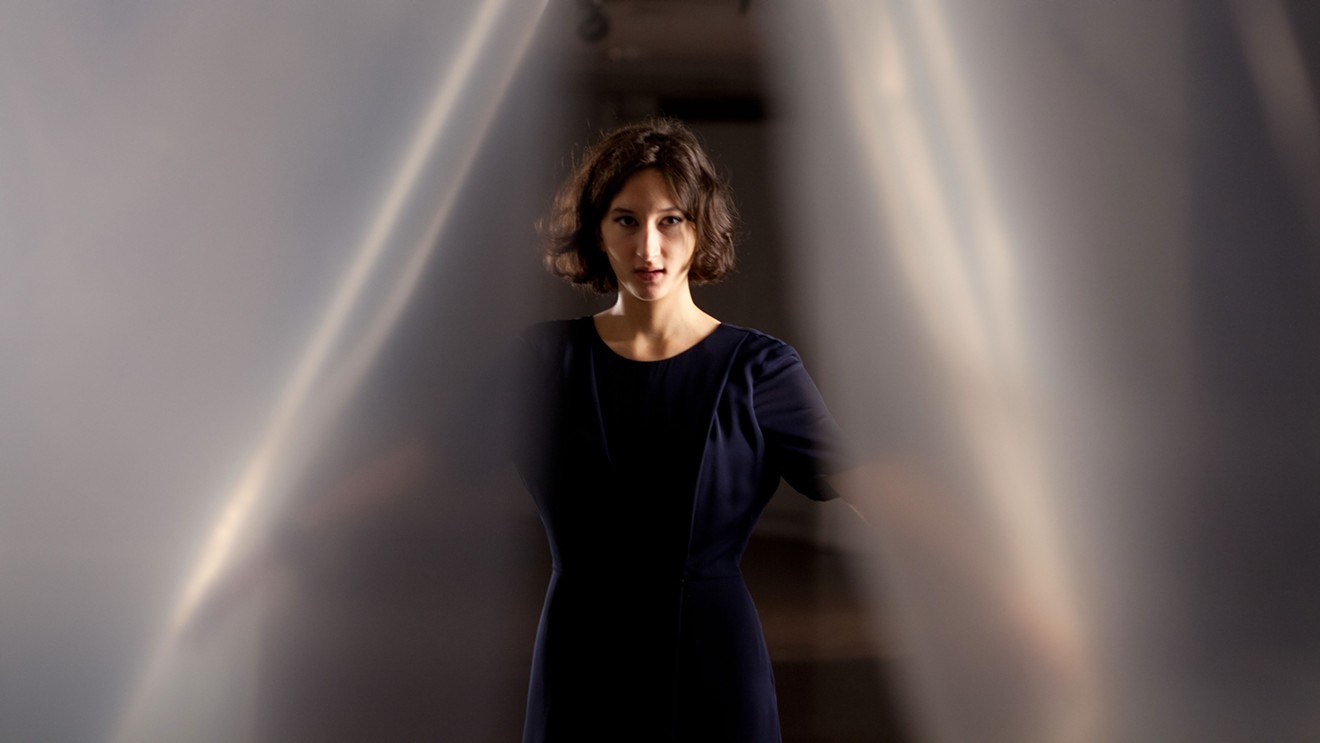Often populated with voluptuaries, the films of Bertrand Bonello unerringly distill mood and milieu. In his heady, sinuous biopic Saint Laurent (2014), for example, Bonello ditched the traditional, usually tedious birth-to-death arc that most films in that genre follow to focus instead on the years 1967 to 1977, the great couturier’s most debauched decade. In the dread-drenched, bifurcated and bold Nocturama, the French filmmaker’s seventh narrative feature, a similar chronological restriction is at play. Recounting roughly 14 hours — from about 2 p.m. to 4 a.m. — Nocturama sharply juxtaposes the micro details of a massive attack on Paris with the vague ideology guiding the coed band of multiethnic millennial and Gen Z terrorists who carry out the assault. The film mesmerizes and alienates equally.
The first half of Nocturama — the title is lifted from a 2003 Nick Cave and the Bad Seeds album — plays as a taut procedural thriller, full of timestamps, Metro maps and tossed burner phones. Some of the beautiful, baby-faced insurrectionists, whose names and relation to one another are parceled out gradually, stride through the maze-like passageways of the Paris subway system, each station name on the 13 line (La Fourche, Champs-Elysees-Clemenceau, Varenne) assuming occult significance. At around the same time, another of these teen terrorists, Sabrina (Manal Issa), checks into a five-star hotel directly across from a gold statue of Joan of Arc on horseback; her brief stay in the upscale resort is one step in an intricate plot to set France’s most venerated heroine ablaze. A little while later, Andre (Martin Guyot), a chief tactician of this cell and a product of the nation’s most elite schools, chats with a family friend at the Ministry of the Interior, another targeted site.
As seen in one of Nocturama’s handful of flashbacks — the time toggle never blatantly announced, part of the film’s deliberately disorienting strategy — toff Andre offers what appears to be the racially and economically diverse group’s guiding political belief. “Civilization is a condition of the downfall of civilization,” he advises Sarah (Laure Valentinelli), who shares Andre’s class bracket, as the young woman seeks his guidance while prepping for her university exams. The nihilistic aphorism — ideology as Ouroboros — animates this ragtag cabal of children of the banlieues and the poshest neighborhoods, their mayhem and bloodshed linked, if at all, to a hazily defined anti-capitalist fury.
Again, that intentional ambiguity is always in contradistinction with a welter of specifics. After the bombs go off, the conflagrations rage, and various dignitaries are shot point-blank, the kids assemble in a luxe shopping mall, where Nocturama’s second half takes place. (The upscale emporium is set in the actual Samaritaine, the beloved Art Deco department store that was shuttered in 2005 and that provided the location for Kylie Minogue’s transporting musical number in Leos Carax’s Holy Motors, from 2012.) The inchoate intifadists are surrounded by brand names — Fendi, Chanel, Bang & Olufsen, Sonia Rykiel — high-end goods that they lustily sample. In between trying on designer ensembles, Sarah asks her boyfriend David (Finnegan Oldfield) if he thinks they killed many people. His response, as blank as the mannequin’s face that stares back at him: “I don’t know. We tried not to. Forget it.”
Bonello, who composed the electrono-anguish that throbs in Nocturama’s first section, scores the second to a collection of diegetic, decade-spanning pop hits — Willow Smith’s “Whip My Hair,” Blondie’s “Call Me” — each tune deployed to sinister, estranging effect. Lithe Yacine (Hamza Meziani), who shares with a fellow Arab insurgent a gruesome anecdote about the Iran–Iraq War, dons a wig and smears on makeup for his lip-synched performance of Shirley Bassey’s version of “My Way”; this ghoulish, desperate floor show of adolescent gender-play becomes the prelude to more carnage.
As precise as a metronome, Nocturama raises larger, thornier questions about timing. Bonello first began writing the movie in 2010 while in production on House of Pleasures (2011), which details the activities at an opulent Parisian bordello during the belle epoque. (One of the stars of the earlier film, Adele Haenel, has a dynamite cameo in Bonello’s latest.) Nocturama was filmed in the French capital in the summer of 2015, after the Charlie Hebdo massacre in January of that year but a few months before the massive ISIS-sponsored slaughter of November. It was released in France last August, a month after the Nice attack; in the year since, of course, each week’s news brought even more horrors.
Yet Nocturama averts exploitation and cynicism by refusing to proffer half-baked answers as to why these fictional, malevolent protagonists did what they did — conjecturing that can often lead to extreme banalities and other obscenities committed in the name of “understanding” repugnant acts. Bonello strips the scaffolding of the film to action and reaction, emphasizing the how and the when of the tyro terrorists’ plot and its consequences.
[
{
"name": "GPT - Billboard - Slot Inline - Content - Labeled - No Desktop",
"component": "16971022",
"insertPoint": "2",
"requiredCountToDisplay": "2"
},{
"name": "Editor Picks",
"component": "15769925",
"insertPoint": "4",
"requiredCountToDisplay": "1"
},{
"name": "Inline Links",
"component": "16575154",
"insertPoint": "8th",
"startingPoint": 8,
"requiredCountToDisplay": "7",
"maxInsertions": 25
},{
"name": "GPT - Rectangle 2x - Slot Auto-select - Labeled",
"component": "15782206",
"insertPoint": "8th",
"startingPoint": 8,
"requiredCountToDisplay": "7",
"maxInsertions": 25
},{
"name": "Inline Links",
"component": "16575154",
"insertPoint": "8th",
"startingPoint": 12,
"requiredCountToDisplay": "11",
"maxInsertions": 25
},{
"name": "GPT - Leaderboard to Tower - Slot Auto-select - Labeled",
"component": "15782207",
"insertPoint": "8th",
"startingPoint": 12,
"requiredCountToDisplay": "11",
"maxInsertions": 25
}
]











